The 2024 Chinese Congress on Holistic Integrative Oncology (CCHIO) will take place in Xi'an, a city rich in history that has served as a capital for over a thousand years, from November 14 to 17, 2024. This event is hosted by the China Anti-Cancer Association and co-organized by the Xijing Hospital of the Air Force Medical University, the Chinese Institute of Development Strategy on Holistic Integrative Medicine, and the Shaanxi Anti-Cancer Association. With the theme "Tumor Prevention and Treatment: Winning through Integration," this conference is the largest and most prestigious academic event in the field of oncology in China.
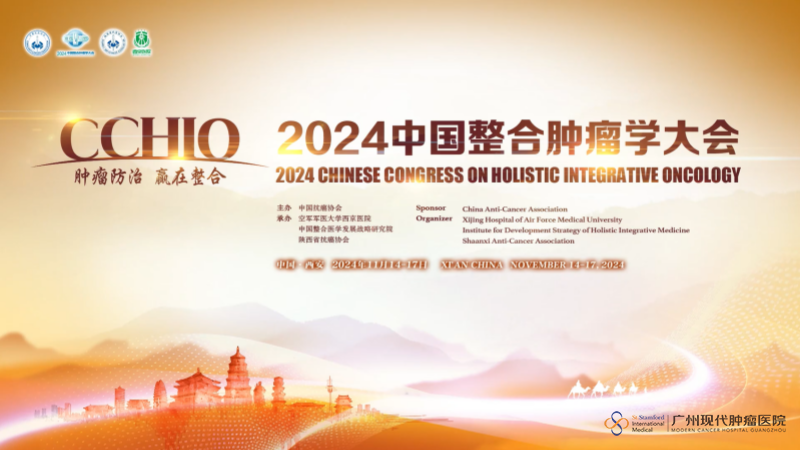
On the afternoon of November 15, as an important international session of the 2024 CCHIO Conference, the 3rd International Congress of the Asian Oncology Society (AOS2024), hosted by the Malaysia-China Anti-Cancer Association and St. Stamford Modern Cancer Hospital Guangzhou, a group member of the China Anti-Cancer Association, was grandly held.
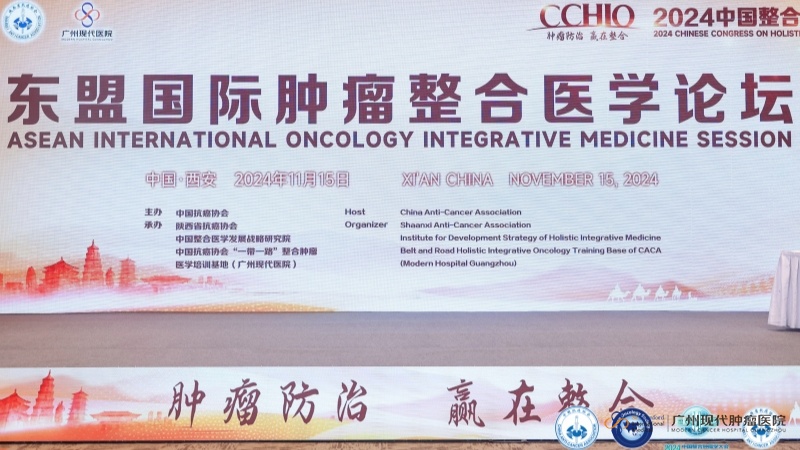
The 2024 AOS Forum was a high-level, international, and large-scale oncology event, attracting over 150 attendees, including more than 30 health officials from seven Southeast Asian countries and nearly 100 oncology experts. The forum focused on major themes such as ‘integrative oncology,’ ‘international oncology,’ and ‘minimally invasive oncology,’ exploring 10 subtopics. It comprehensively showcased the latest achievements in integrative oncology from China and Southeast Asia, significantly advancing the exchange and integration of oncology medicine in the ASEAN region!
Focusing on integrative oncology medicine, gathering top experts from ASEAN
In today’s era of advancing medical technology, tumor diagnosis and treatment have entered the age of ‘integration.’ The 2024 AOS Forum focused on exploring integrative oncology, bringing together experts from various countries with visionary perspectives and broad horizons to collectively envision the future of integrative oncology.
The leaders and guests attending the 2024 AOS Forum included: Professor Fan Daiming, Academician of the Chinese Academy of Engineering and President of the China Anti-Cancer Association; Professor Wang Ying, Secretary-General of the China Anti-Cancer Association; Professor Zhang Lijun from the International Exchange Department; Ms. Jin Nongyi, Honorary President of the Malaysia-China Anti-Cancer Association; Mr. Lin Daoxuan, Chief Medical Officer of St. Stamford Medical Group; Mr. Lin Xinwei, General Manager of St. Stamford Modern Cancer Hospital Guangzhou; Professor Yin Pingshan, Distinguished Traditional Chinese Medicine Oncology Expert at Nanfang Hospital of Southern Medical University and St. Stamford Modern Cancer Hospital Guangzhou; Professors Dai Wenyen, He Jianyu, and Hu Ying from St. Stamford Modern Cancer Hospital Guangzhou; Professor Chen Xiaobing from Henan Cancer Hospital; Mr. Lin Yunliang from the Consulate General of Malaysia in Xi’an; Professor Nie Yongzhan from the First Affiliated Hospital of Air Force Medical University; Professors Zhang Fujun, Xia Wen, Wang Feng, and Ju Huaiqiang from the Sun Yat-sen University Cancer Center; Professor Wang Ying from the Cancer Hospital Chinese Academy of Medical Sciences, Shenzhen Center; Professor Feng Guoan from the Malaysia-China Anti-Cancer Association; Professor Aigul Shinbolatova from the Kazakh Institute of Oncology and Radiology; Dr. Edhy Listijo from the Surabaya Hospital Association in East Java, Indonesia; and Professor Li Zhonghai from the Vietnam General Hospital, among others.
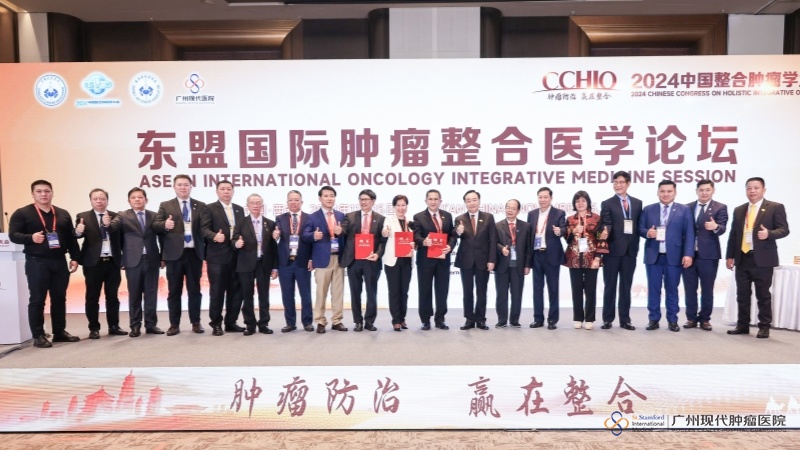
At the opening ceremony, Professor Wang Ying, Secretary General of the China Anti-Cancer Association, said that under the background of the country's implementation of the "Belt and Road" development strategy, the "Belt and Road" Integrated Oncology Medicine (Guangdong) Training Base established by the China Anti-Cancer Association in St. Stamford Modern Cancer Hospital Guangzhou has promoted the medical exchanges and integration between China and Southeast Asian countries. It’s expected that the participating experts will fully display the latest academic achievements and contribute to the development of integrated oncology medicine.
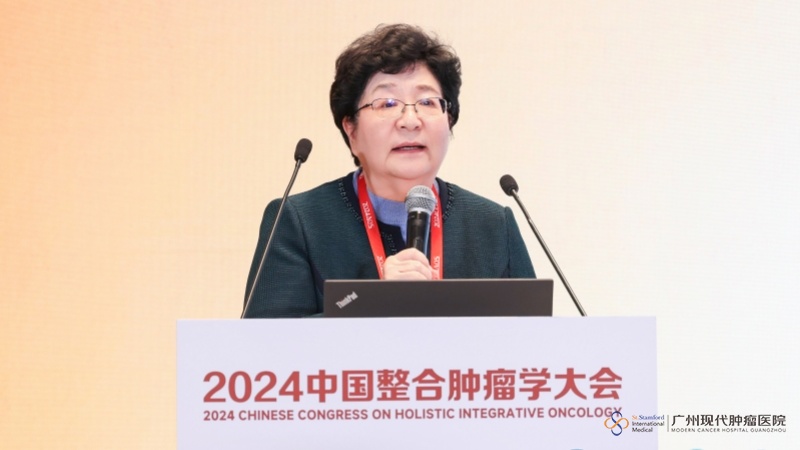
(Professor Wang Ying, Secretary General of the China Anti-Cancer Association)
Mr. Lin Yunliang, Consulate General of Malaysia in Xi'an, believes that the concept of integrative medicine coincides with the concept of diversity and inclusiveness advocated by Malaysia. The holding of this forum is an important measure for ASEAN countries to jointly cope with tumor challenges and promote medical progress. The friendship between China and Malaysia is as deep as the ocean. Many Malaysian patients have gained hope for treatment in St. Stamford Modern Cancer Hospital Guangzhou. We look forward to more patients benefiting from integrative medicine in the future.
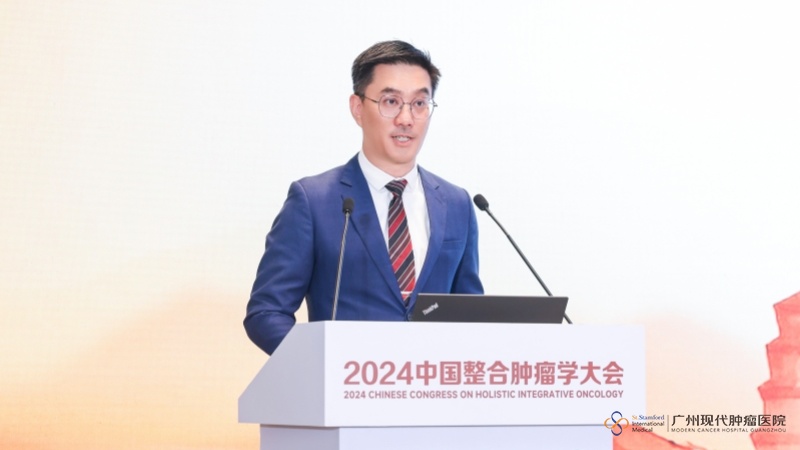
(Mr. Lin Yunliang, Consulate General of Malaysia in Xi'an)
Showcasing ASEAN research results and exploring the frontier of oncology integration
The 2024 AOS Forum is divided into three main topics: Integrative Oncology, International Oncology, and Minimally Invasive Oncology. Ten experts and scholars from both domestic and international backgrounds delivered keynote speeches, sharing new concepts and achievements. The content was highly engaging, sparking enthusiastic responses from the audience.
At the forum, Professors Yin Pingshan, Dai Wenyen, and He Jianyu from St. Stamford Modern Cancer Hospital Guangzhou presented their latest research findings. In his keynote speech titled “Characteristics of Traditional Chinese Medicine in Cancer Treatment,” Professor Yin emphasized that Traditional Chinese Medicine (TCM) focuses on addressing the root cause of diseases and adheres to the principle of combining disease differentiation with syndrome differentiation. He highlighted that the proper application of TCM during the four phases of cancer treatment—initial treatment, maintenance therapy, treatment during remission, and recurrence treatment—can achieve a synergistic effect of 1+1>2, delivering remarkable outcomes.
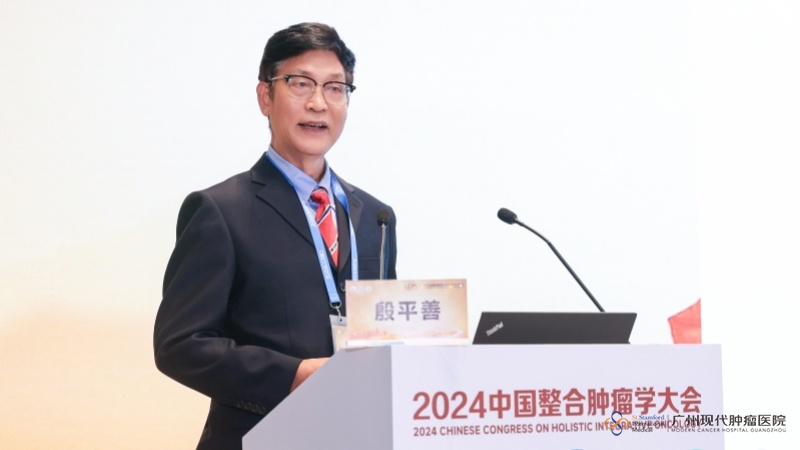
(Professor Yin Pingshan, St. Stamford Modern Cancer Hospital Guangzhou)
In her keynote speech, Professor Dai Wenyen shared her team’s research findings, highlighting that compared to circulating tumor cells (CTCs), circulating immune-chimeric tumor cells (CICs) exhibit significantly higher expression of immune checkpoint-related genes. These cells possess the ability to evade T-cell-mediated killing and demonstrate higher sensitivity to immunotherapy efficacy. CICs are thus a potential biomarker for assessing the effectiveness of immunotherapy. This discovery has made a significant contribution to the field of tumor immunotherapy and brings new hope to patients.
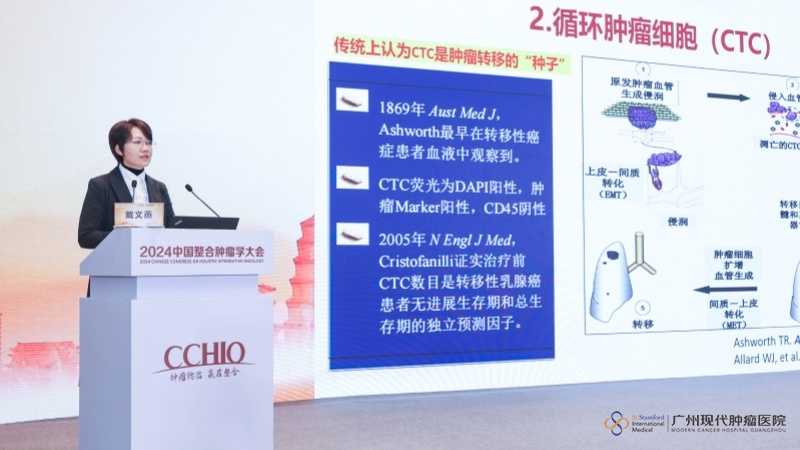
(Professor Dai Wenyan, St. Stamford Modern Cancer Hospital Guangzhou)
The treatment of high-risk tumors such as intracranial tumors has always been one of the difficulties in clinical practice. Professor He Jianyu combined the cases of intracranial tumor seed implantation and other clinical high-risk tumor cases to share his experience and achievements in the treatment of high-risk tumors. He said that with the development of minimally invasive technology in our hospital, there has been great progress in the treatment of high-risk tumors, which has greatly solved the clinical treatment difficulties of some patients.
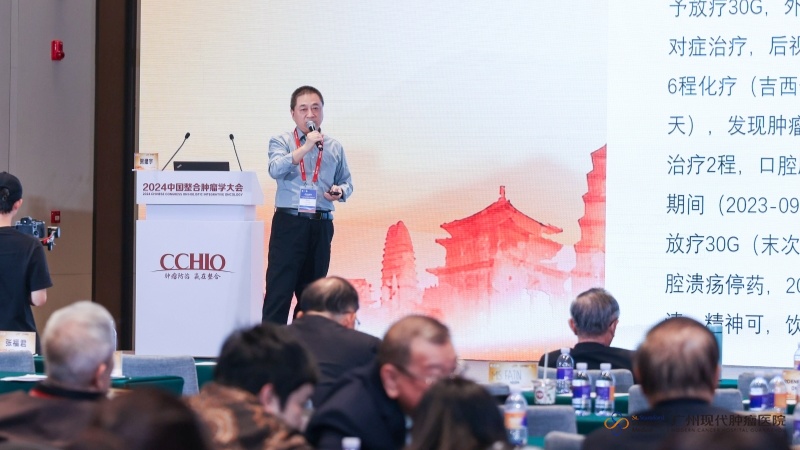
(Professor He Jianyu of St. Stamford Modern Cancer Hospital Guangzhou)
In the topic of oncology integration, oncologists focused on integrative medicine from different perspectives and shared their advanced experiences in clinical and scientific research. Professor Wang Ying shared "The Current Situation and Future of Integrated Diagnosis and Treatment of Colorectal Cancer," and Professor Chen Xiaobing introduced "Three Magic Weapons of Integrated Rehabilitation for Esophageal Tumors"; on the topic of international tumors, Professor Feng Guoan from Malaysia, Professor Aigul Shinbolatova from Kazakhstan, Professor Dr. Edhy Listijo from Indonesia and Professor Li Zhonghai from Vietnam shared their countries' new progress in tumor treatment.
Create an international exchange platform and win high praise from all parties
At this grand feast of integrative oncology, every international guest had the opportunity to experience the pulse of global medical advancements and glimpse the peaks of medical progress. The excitement and enthusiasm among the attendees were palpable, with many expressing high praise for the event. They eagerly anticipated deeper exchanges and enhanced collaboration with their Chinese counterparts in the future.
Dato’ Seri Chen Liangcheng, President of the Malaysia-China Anti-Cancer Association, expressed his high appreciation for the contributions of this forum. He was deeply impressed by China’s successful experiences and rich culture in cancer prevention and treatment. Emphasizing the importance of learning from others’ strengths to overcome one’s shortcomings, he stated that the Malaysia-China Anti-Cancer Association could adopt and integrate China’s advanced technologies and successful practices into Malaysia’s clinical diagnosis and treatment, ultimately benefiting more cancer patients.
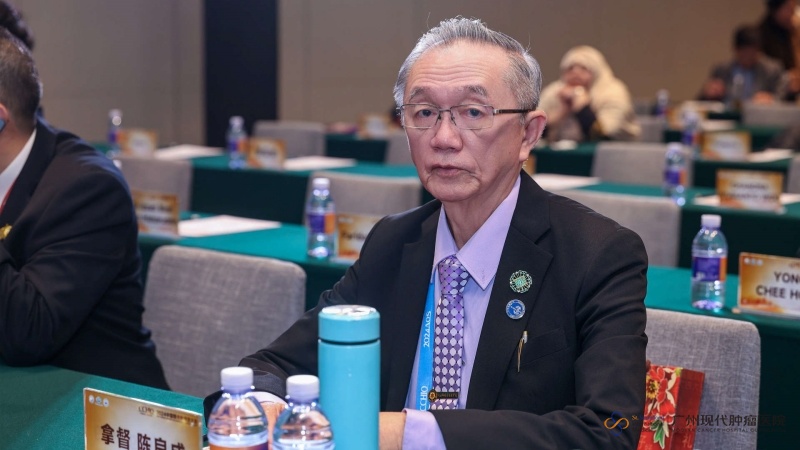
(President of the Malaysia-China Anti-Cancer Association, Dato’ Chen Liangcheng)
Professor Li Zhonghai, Director of Hanoi General Hospital and Chairman of Vietnam Hepatobiliary Association, said that China's minimally invasive treatment technology is at the forefront of the world and has played an excellent role in helping patients relieve pain, promote physical recovery, and prolong survival. He benefited a lot from the integrated minimally invasive technology introduced in the forum.
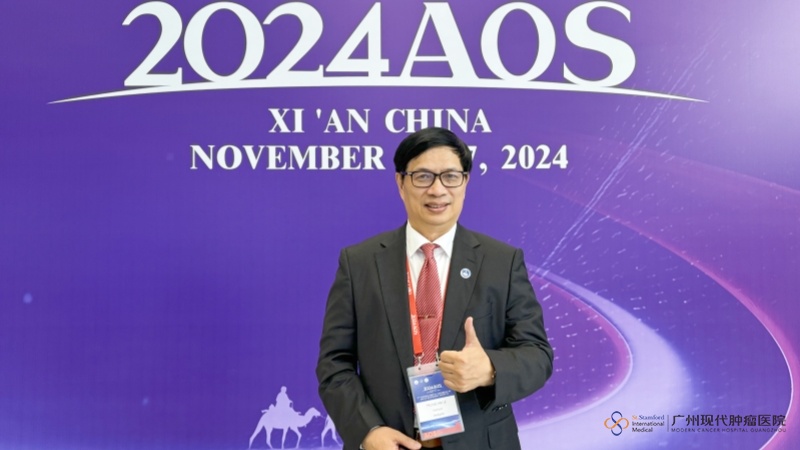
(Professor Li Zhonghai, Director of Hanoi General Hospital and Chairman of Vietnam Hepatobiliary Association)
During the exchange, Dr. Megawati Santoso, Director of the Management Committee of the Indonesian Ministry of Health, said that Indonesia's anti-cancer cause is facing challenges, such as a shortage of medical resources and a lack of public awareness of cancer screening. This forum can provide more new ideas and solutions, which will help to brainstorm. At the same time, Dr. KAMJAD RAMAKUL, Medical Advisor of the Thai Ministry of Health, and Mr. SANJ SUGAR, President of the Mongolian Anti-Cancer Association, also expressed their expectation to further cooperate with China in science popularization, anti-cancer technology, and talent exchange in the future to promote the development of their anti-cancer practices.
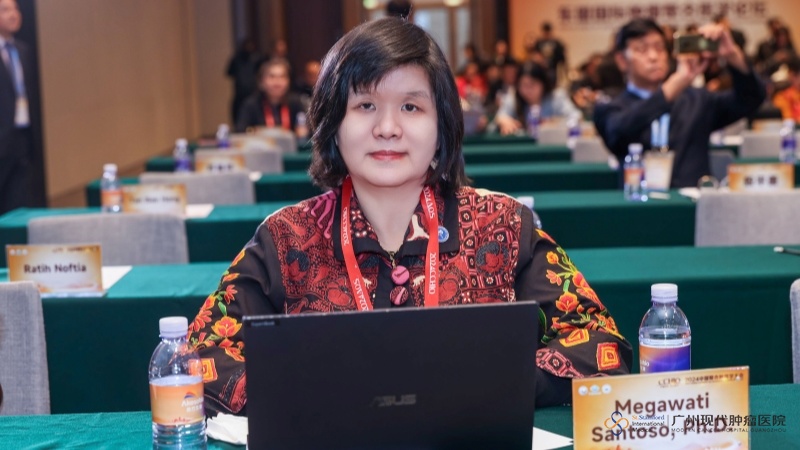
(Dr. Megawati Santoso, Director of the Management Committee of the Indonesian Ministry of Health)
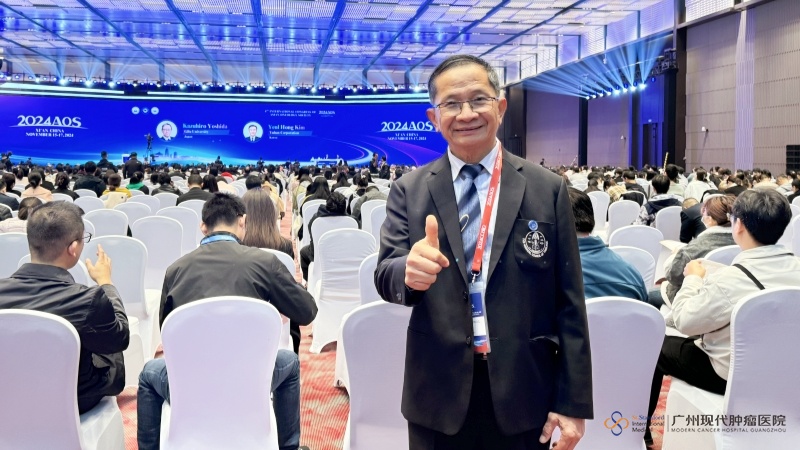
(Dr. KAMJAD RAMAKUL, Medical Advisor of the Thai Ministry of Health)
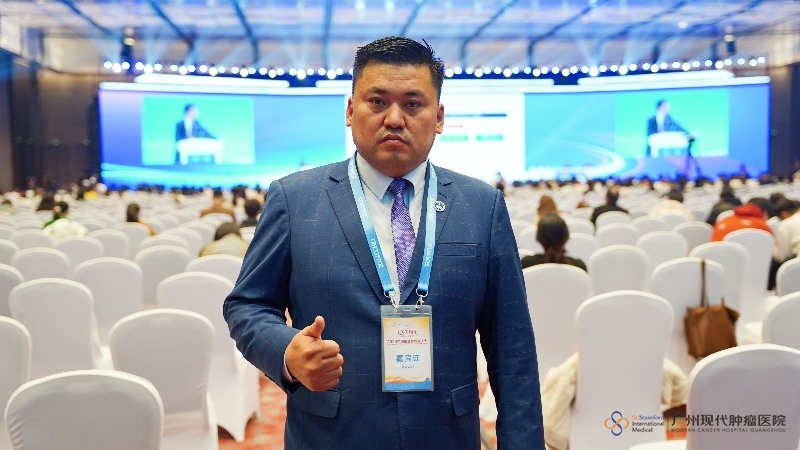
(Mr. SANJ SUGAR, President of the Mongolian Anti-Cancer Association)
Finally, Fan Daiming, Chairman of the CCO Conference, Chairman of the China Anti-Cancer Association, and Academician of the Chinese Academy of Engineering, summarized the meeting. He said that integrative medicine is the future development direction of oncology, and its value lies in tailoring each patient's individualized diagnosis and treatment plan to achieve the best diagnosis and treatment effect. He fully affirmed the influence of this forum in international exchanges and expressed the hope that ASEAN countries will continue to strengthen exchanges and cooperation in the future so that the power of integrative medicine can spread throughout the world.
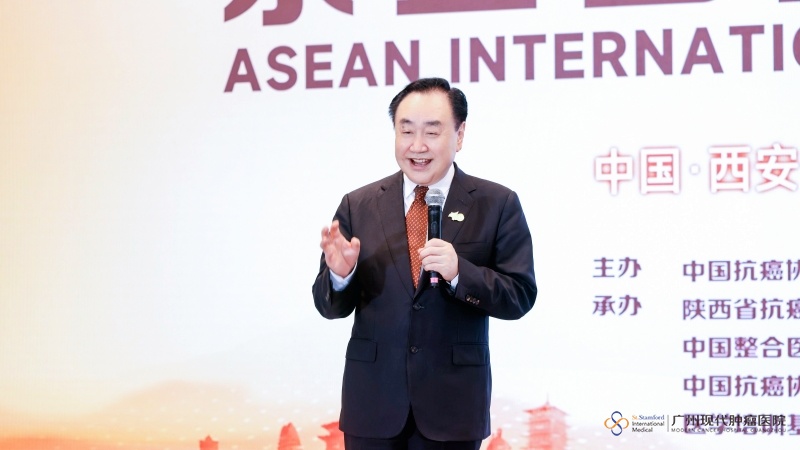
(Fan Daiming, Chairman of the CCO Conference, Chairman of the China Anti-Cancer Association, and Academician of the Chinese Academy of Engineering)
Facing cancer, the biggest public enemy in the health care of countries around the world, only by joining hands with our friendly neighbors and advancing and retreating together can we form a synergy. In the future, our hospital will continue to promote international exchanges and cooperation and contribute an international "modern" force to the development of integrative medicine!
*Surgery, in addition to the appropriate chemotherapy and radiotherapy, are effective in treating early cancer, but certain patients in late stage of cancer may not be tolerate surgery well as they can be relatively weak. A combination of carefully planned minimally invasive therapy, chemotherapy or radiotherapy can effectively reduce the side effects and discomfort of treatment and may help patient get better efficacy.













 viber
viber